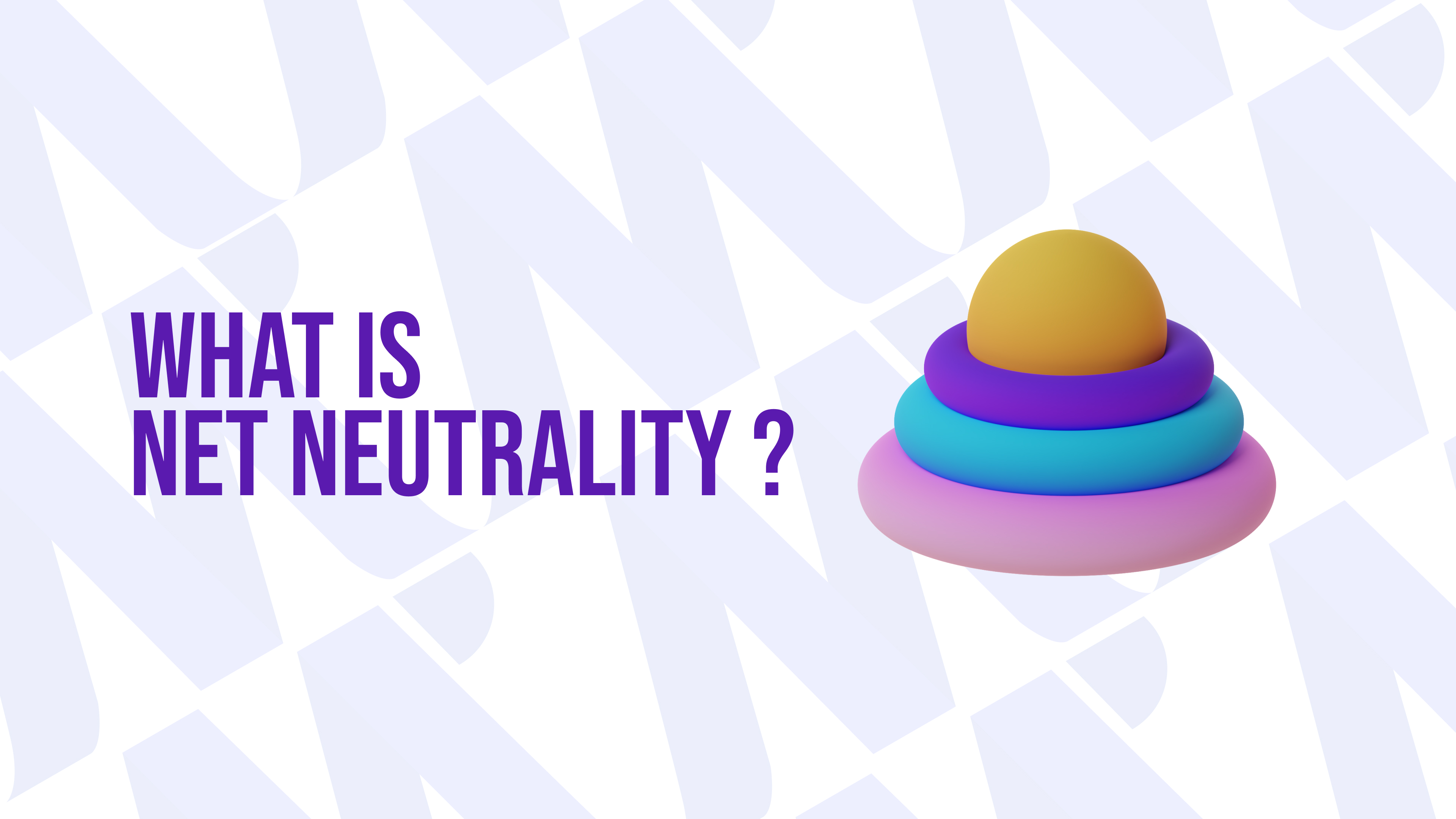One might assume that all content on the internet is equally accessible and open. This is the basis of net neutrality. Wikipedia defines net neutrality as ‘the principle that internet service providers (ISPs) should enable access to all content and applications regardless of the source, and without favouring or blocking particular products or websites.’ In simple words, internet service providers should treat all data on the internet equally. They should not restrict or block access or slow down access to some content on the internet for their own benefit.
Net neutrality also suggests that ISPs are not allowed to make special arrangements with services or websites to give them fast network access or speed in return for premium payment. Big companies that can pay for this special treatment get a competitive advantage over others. Smaller companies especially cannot afford this and will get buried over. So, net neutrality creates a fair playground for all businesses and services to flourish on the internet.
History of net neutrality:
Tim Wu, a Columbia University law professor coined the term “network neutrality” in his 2003 paper about online discrimination. At that time, broadband providers like Comcast banned home internet users from accessing virtual private networks (VPNs). Others like AT&T banned users from using Wi-Fi routers. The concern was that the broadband providers’ ability to restrict new technologies and services would hurt innovation in the long run. For example, if internet providers blocked or limited video streaming services in the mid-2000s, there would be no YouTube or Netflix today. Ultimately the users are most affected by this and the company that connects you to the internet has control over what content you see and what services you can enjoy.
Throughout the time until now, the net neutrality laws have been passed several times and annulled several times. The Federal Communications Commission in the Bush era passed the first net neutrality laws in a policy statement in 2005. Under this policy, internet service providers were considered as “common carriers”, like public vehicles, meaning they couldn’t discriminate between their users. The FCC prohibited internet service providers from blocking legal content and preventing customers from using a service. In 2010, the FCC in the Obama era passed a more detailed net neutrality order. When the control of the FCC changed as a result of Trump’s election as president, the net neutrality laws were effectively changed. The new laws don’t stop internet service providers from blocking or slowing content as required. They can also charge a premium for companies that want to access the fast lane.
Advantages of net neutrality:
The supporters of net neutrality believe that the internet should be free, open, and non-discriminatory. This is essential for a democratic exchange of ideas and ethical business practices. The supporters include the general public, of course, although not unanimously. After all, the laws regulating the internet and content visibility affect us more than big-name companies. Other advocates for net neutrality include human rights organizations, consumer rights advocates, non-governmental organizations, as well as many software and technology companies like Netflix, Yahoo, Twitter, Microsoft, and Amazon.

Here are a few advantages of net neutrality.
- Innovation
Imagine what the world would be like if internet service providers in the 2000s who were also majorly telephone companies, favoured their own streaming services and websites over YouTube or Netflix. Or what if they gave improved access and speed to existing big-name social media like Myspace? We wouldn’t have Facebook today. We wouldn’t have so many other internet services that started taking off in the late 2000s.
Net neutrality laws prohibit ISPs to slow down, blocking, or restricting content from users. When all businesses and services have equal opportunities to thrive, there will be newer and more innovative services. Now more than ever we need this kind of freedom since the world is getting digitized and people can make living off of their online content.
- Freedom in information
Net neutrality allows freedom in information sharing and accessing services on the internet. In a free, open, and accessible internet, you have many options in services, social media, streaming sites, music platforms, news sites, etc.
- Fair business
Companies that can afford to pay a premium for improved visibility have a competitive advantage over others. The ones that can’t fall by the wayside. Privileging established companies and blocking out smaller ones is no way to do business. Not just for businesses, even for consumers, if they don’t have choices in the services they can use, that is cheap business. The internet business becomes a virtual monopoly; the rich get richer without much effort.
Net neutrality ensures that the internet is an open place and businesses have a fair shot.
- Better services and products
Imagine a clothing company making an arrangement with an ISP for more visibility and better traffic. The ISP will block out its competitors from reaching its users. In such a case, there is no competition and the clothing company doesn’t have to improve its products and services to grow. In the end, the consumers are the ones who get affected; subpar services and no alternatives.
- Fair charges for online services
In 2014, the ISP Comcast slowed down Netflix’s streaming speed for its users. It wasn’t until Netflix agreed to pay Comcast, the streaming speed shot up. In such cases, companies that have to pay ISPs for the fast lane can also increase the charges of their products and services to cancel out that expense. You end up paying more to browse your favourite sites. Again, it is the general consumer that gets stuck with skyrocketing charges for content online.
- Because many people don’t have a choice
Many people simply don’t have many options in ISPs in rural or underdeveloped areas. When charges for internet services and content shoot high, they have one of two choices; to put up with it, or live without internet. So, net neutrality also protects people in such areas from having to pay a fortune for the same services.
Disadvantages of net neutrality:
It isn’t hard to believe that the critics of net neutrality are generally internet service providers, and why. Simply by making arrangements with companies, they can rack up a lot of money. Some might argue that it is right. Because the data required to stream a video on YouTube or Netflix, or browse social media is considerably larger, as compared to, say, email. So, why shouldn’t ISPs ask for more money for bigger data? With this money, they can invest in improving their infrastructure and providing better services.
Net neutrality, of course, doesn’t allow them to do this. This is the reason why such big online content providers love and support it. But ISPs get disincentivized for innovation. By not being able to increase prices, they cannot grow. Their investments are hard to pay off. For example, laying down wires can be expensive based on the location. They argue they must be allowed to charge differently for different services to remain competitive and expand broadband networks.
Net neutrality treats all web traffic the same and makes all online content equally accessible. It has been a topic of debate primarily in the US for a long time, but it affects the rest of the world as well. When the US government repealed the net neutrality laws in 2017, the decision was met with criticism and dissatisfaction.
Net neutrality stands with varying effectiveness throughout the world; countries each have different rules. India remains the country with the strictest net neutrality rules in the world since 2017. Service providers who violate these rules face harsh consequences and some have even lost their licenses. More countries including Belgium, South Korea, Canada, Japan, Russia, and Brazil have enforced net neutrality rules. And it is not difficult to understand why they often come first in innovation and technology. In Nepal, there is no clear policy that regulates content on the internet. Again, not hard to believe, as we face clear consequences first-hand.
To a general consumer, it doesn’t seem to be much of a concern where or how their money is spent long as they get internet services. But when it comes to freedom in the content that we get to consume, we should be aware at the very least.

